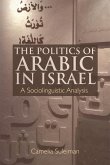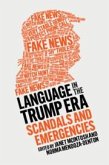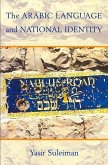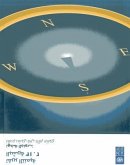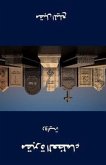'With this fourth volume of his planned pentalogy on language and society across the Arabophone world, Suleiman's observant ear and eye, penetrating analytic mind, and lucid and elegant voice provide rich insight into the ideologies surrounding Arabic and the many tongues with which it shares a heteroglossic reality. Arabic in the Fray is indispensable for students of the languages and cultures of western Asia and northern Africa.' John E. Joseph, University of Edinburgh. Author of Language and Politics (Edinburgh University Press, 2006). 'A unique contribution to Arabic sociolinguistics, this is the first book to address ideologies, conflicts and identities through such a vast timeframe and using original data from the Arab world. It should form the basis for any future study on Arabic variation and change, and will be of great relevance to all scholars interested in Arabic and society.' Reem Bassiouney, Georgetown University. Author of Arabic Sociolinguistics (Edinburgh University Press, 2009). Develops Yasir Suleiman's groundbreaking project on Arabic in the social world Taking as its point of departure the symbolic role of language and its use as proxy in the social world, this book investigates how Arabic is involved in ideological and cultural debates in which conflict is a defining feature. The author shows how discussions about the inimitability of the Qur'an in the pre-modern world were, at some deep level, concerned with issues of ethnic election against the background of inter-ethnic strife among Arabs and non-Arabs. Discussions of the (un)translatability of the Qur'an in this period are further shown to be related to this notion of ethnic election. In this respect, theology and ethnicity emerge as partners in theorising language in society. Staying within the symbolic role of language and its use as proxy, the book further investigates the role of paratexts and literary production in disseminating language ideologies and in cultural contestation. Language symbolism is also shown to be relevant in ideological debates about hybrid or cross-national literary production in the Middle East and North Africa. Language ideology appears to be everywhere, including in discussions of the cognitive role of language in linking thought to reality, to which a whole chapter is devoted. Here, building on his highly acclaimed previous published works, Yasir Suleiman takes in a new direction his arguments on ideology and cultural politics. Yasir Suleiman is His Majesty Sultan Qaboos Bin Sa'id Professor of Modern Arabic Studies and a Fellow of King's College at the University of Cambridge. He is author of The Arabic Language and National Identity: A Study in Language Ideology (Edinburgh University Press, 2003), A War of Words: Language and Conflict in the Middle East (2004) and Arabic, Self and Identity: A Study in Conflict and Displacement (2011). Cover image: Jerusalem Bezalel British Mandate Jaffa road sign (c) Djampa. Cover design: [EUP logo] www.euppublishing.com
Hinweis: Dieser Artikel kann nur an eine deutsche Lieferadresse ausgeliefert werden.
Hinweis: Dieser Artikel kann nur an eine deutsche Lieferadresse ausgeliefert werden.


